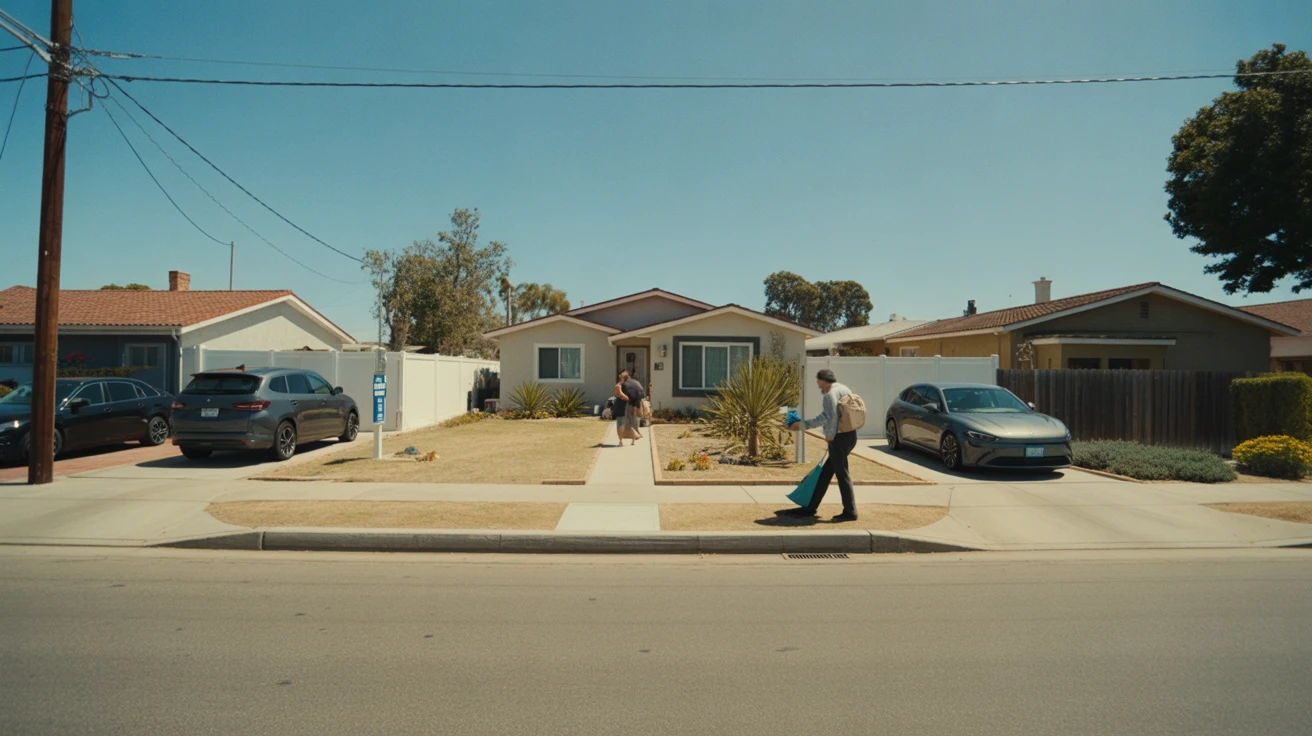National City is considered moderately expensive in 2025, with average rent for a 2-bedroom apartment at $2,100 and slightly higher grocery and transportation costs compared to the national average.
As of 2025, the median home price in National City is $680,000, a 12% increase from 2020 levels. For renters, expect to pay around $2,100 per month for a typical 2-bedroom apartment.

Housing Costs in National City
Housing is the biggest expense for most National City residents. Here’s a breakdown of what you can expect to pay in 2025 based on housing type and neighborhood:
| Housing Type | Neighborhood | Typical Price Range |
|---|---|---|
| 2-bedroom apartment | Downtown | $2,000 – $2,400 |
| 2-bedroom apartment | Outer neighborhoods | $1,800 – $2,200 |
| 3-bedroom house | Citywide | $650,000 – $750,000 |
Many neighborhoods have homeowners associations (HOAs), which can add $200-400 to monthly housing costs for amenities and maintenance. Renter’s insurance averages $15-25 per month.
Utility Costs
In National City, basic utilities for a 915 sq ft apartment cost around $200 per month on average:
- Electricity: $80-120
- Gas: $30-50
- Water/Sewer/Trash: $60-80
- Internet: $45-65
Cooling costs can spike electric bills by $40 or more in the summer months. Many homes have solar panels which can help offset utility expenses.
Groceries and Food
Groceries in National City cost about 5% more than the national average. Expect to budget at least $350-400 per person monthly for food:
- Gallon of milk: $3.50
- Loaf of bread: $3.00
- Carton of eggs: $3.00
- Pound of chicken breast: $4.50
Dining out costs $12-15 per person for a basic meal at an inexpensive restaurant. A mid-range, three-course dinner for two averages $60 before tip.
Taxes in National City
National City’s sales tax rate is 7.75%, which is slightly lower than in some nearby cities like San Diego (7.75%) or Chula Vista (8.25%). The effective property tax rate is 0.73%, meaning a home assessed at $680,000 would owe about $4,960 per year ($413/mo).
California has a progressive income tax that ranges from 1-12.3% depending on taxable income. A single filer grossing $75,000 would owe about $3,500 in state income tax.
Transportation and Commuting
Gas prices in National City are about 20% higher than the national average, at around $4.20 per gallon in 2025. Car insurance costs $1,500-2,000 annually for a typical driver.
Public transit options include the San Diego Trolley ($2.50 one-way) and Metropolitan Transit System buses ($2.25). Monthly passes are available for $72-100. Many residents commute to jobs in San Diego, which can take 30-45 minutes in rush hour traffic.
Sample Monthly Budget for National City
| Expense Category | Single Adult | Couple | Family of 4 |
|---|---|---|---|
| Housing (rent, insurance) | $1,300 | $2,100 | $2,800 |
| Utilities | $150 | $200 | $320 |
| Groceries | $400 | $700 | $1,200 |
| Transportation | $200 | $300 | $500 |
| Healthcare | $250 | $500 | $800 |
| Other Necessities | $250 | $400 | $600 |
| Discretionary | $400 | $600 | $800 |
| Monthly Total (Gross) | $2,950 | $4,800 | $7,020 |
Note that these are estimates based on typical expenses and pre-tax income. Actual budgets can vary significantly depending on lifestyle, family size, housing choices, and income level.
Lifestyle and Affordability in National City
While National City is less expensive than some coastal areas of San Diego County, it still has a relatively high cost of living compared to the national average. Housing is the biggest factor, with home prices and rents continuing to rise year-over-year.
However, many residents feel the costs are worth it for the mild climate, job opportunities, and proximity to beaches and attractions in San Diego. Traffic and commute times can be a tradeoff, as can smaller home sizes or older properties in more affordable areas.
Overall, a household income of at least $75,000 (gross) for a couple or $110,000 for a family of four is recommended to live comfortably in National City while covering all necessities, saving for the future, and allowing for some discretionary spending. Budgeting diligently is key to making it work on a lower income.
Frequently Asked Questions
What salary do you need to live in National City?
A gross income of $75,000 or more is ideal for a couple to afford basic expenses, discretionary spending, and some savings. Families and those looking to buy a home will need $100K+ to live comfortably.
Why is National City so expensive?
Housing costs are the main reason, driven by limited supply and high demand to live in the San Diego metro. Land constraints and building regulations also play a role. Other costs like utilities, groceries and transportation also tend to be higher than the national average.
Is National City cheaper than San Diego?
In general, yes – housing costs in National City are about 10-20% lower on average than in the city of San Diego proper. However, it is still more expensive than many other parts of the country.
What are the most affordable neighborhoods in National City?
The South and West sides of the city tend to have lower housing costs, with apartments starting around $1,500. The tradeoff is a longer commute to downtown San Diego.
Is it possible to live in National City without a car?
While there are some public transit options, most errands and commuting is more convenient with a car. Uber/Lyft are available but costs can add up quickly. Biking is possible in some areas but roads are busy.
